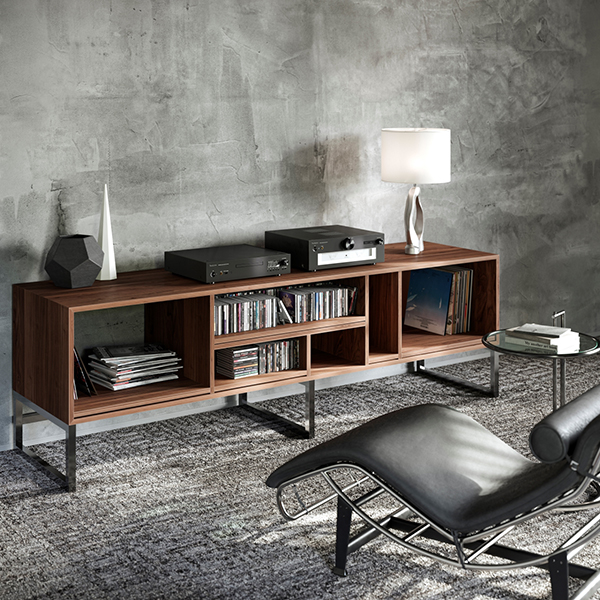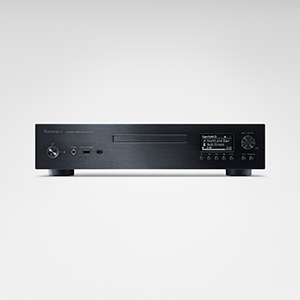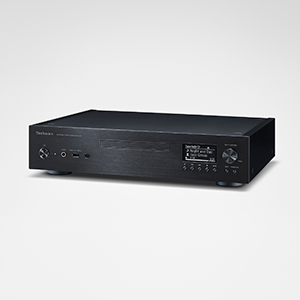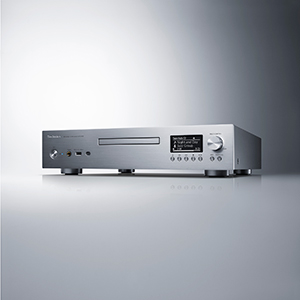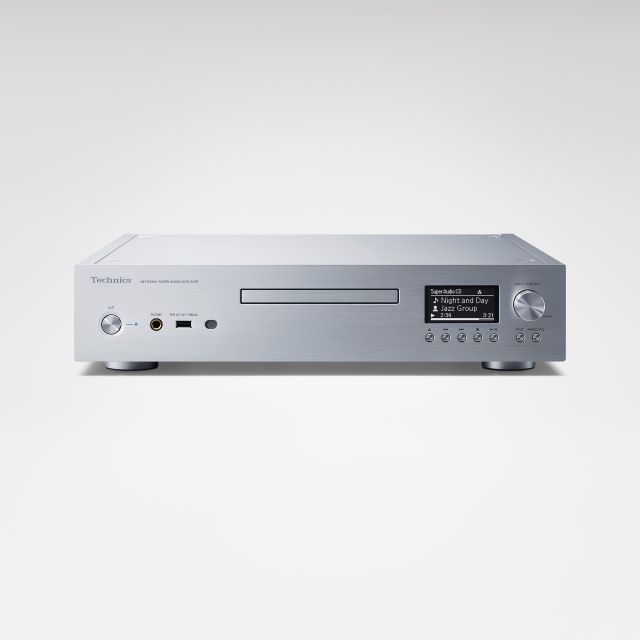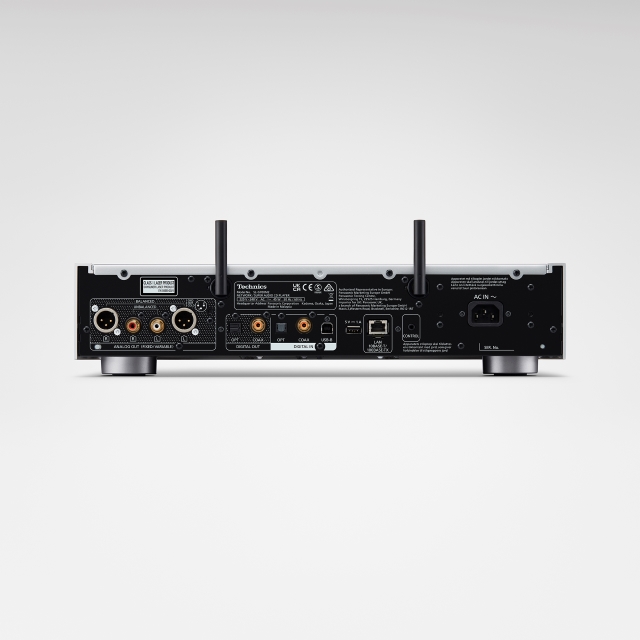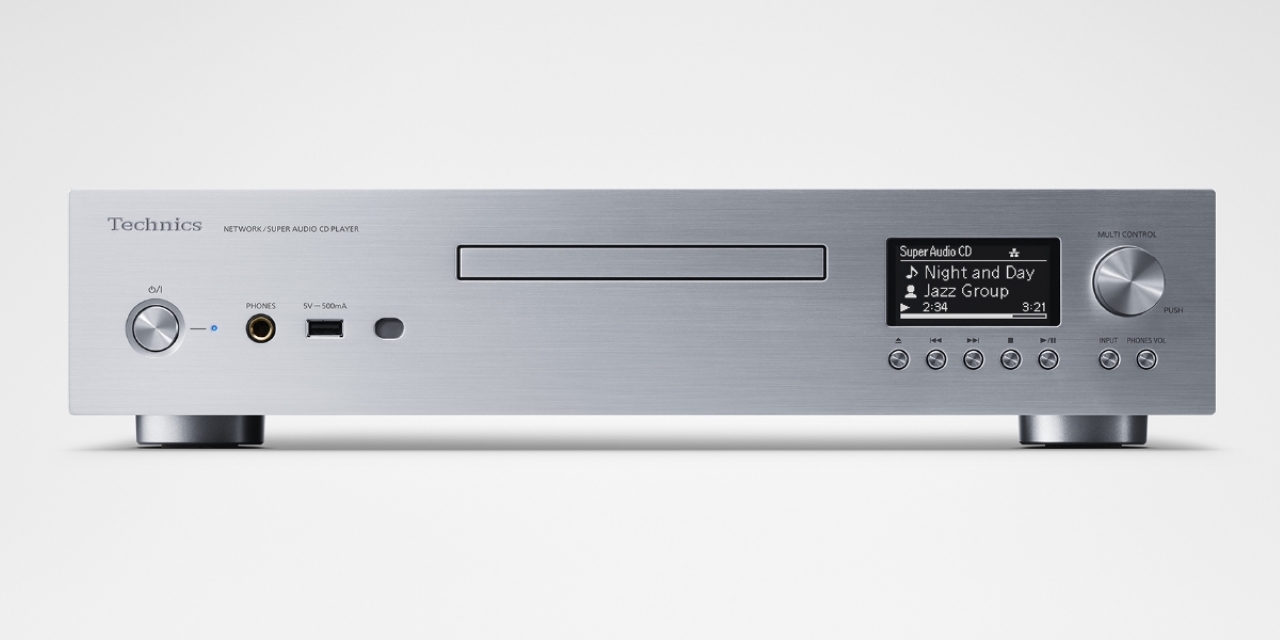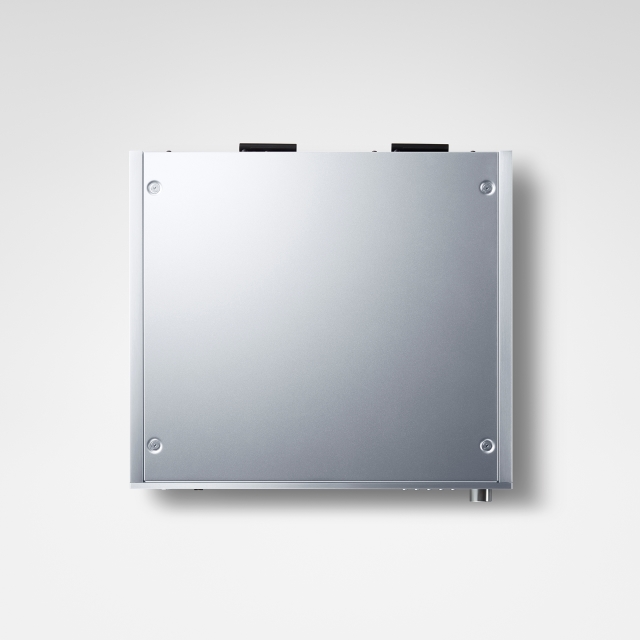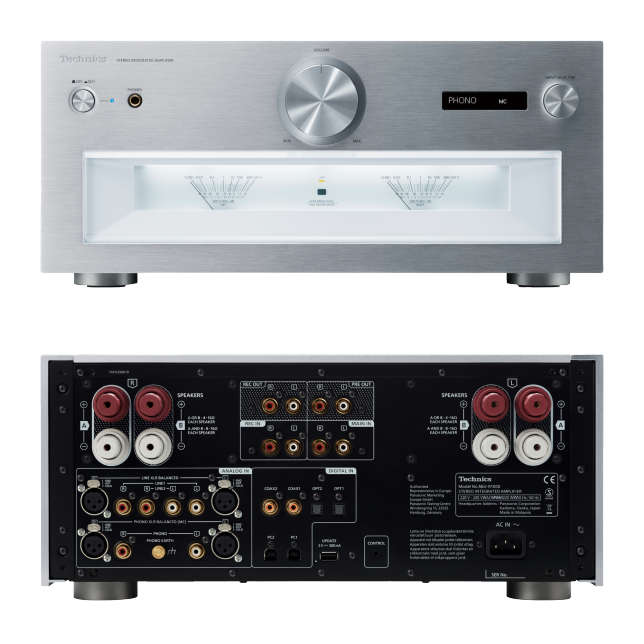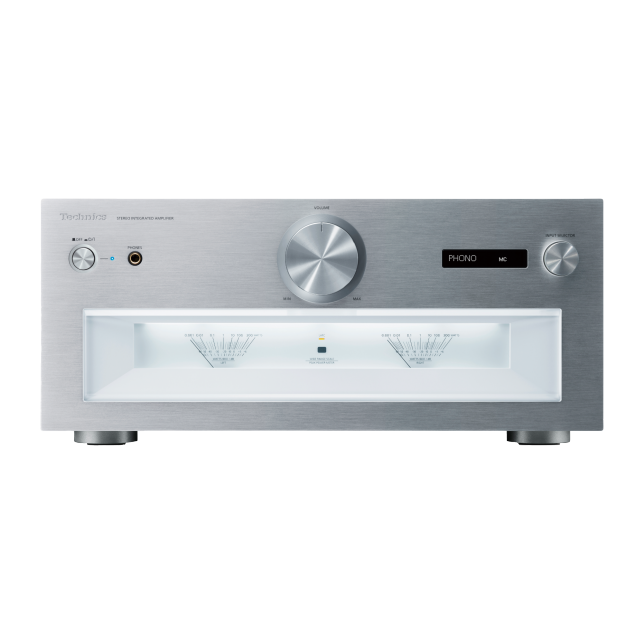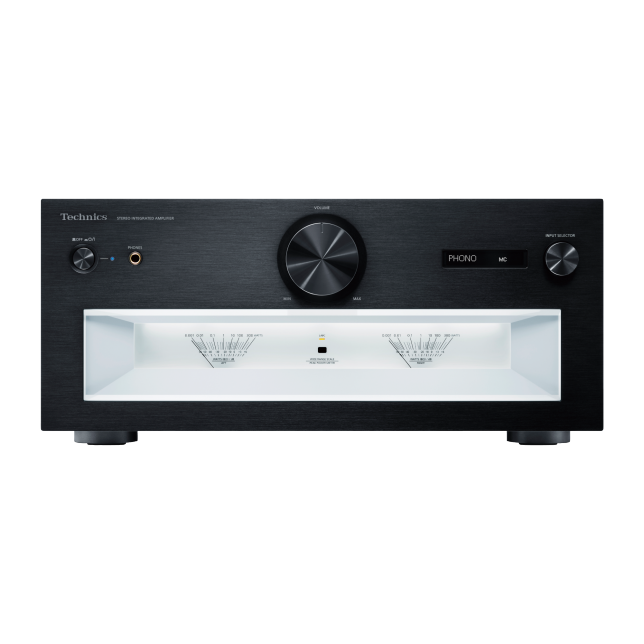SU-R1000
Reference Class
Technics continues to pursue the ideal sound by challenging new sonic dimensions realized by a full digital amplifier.
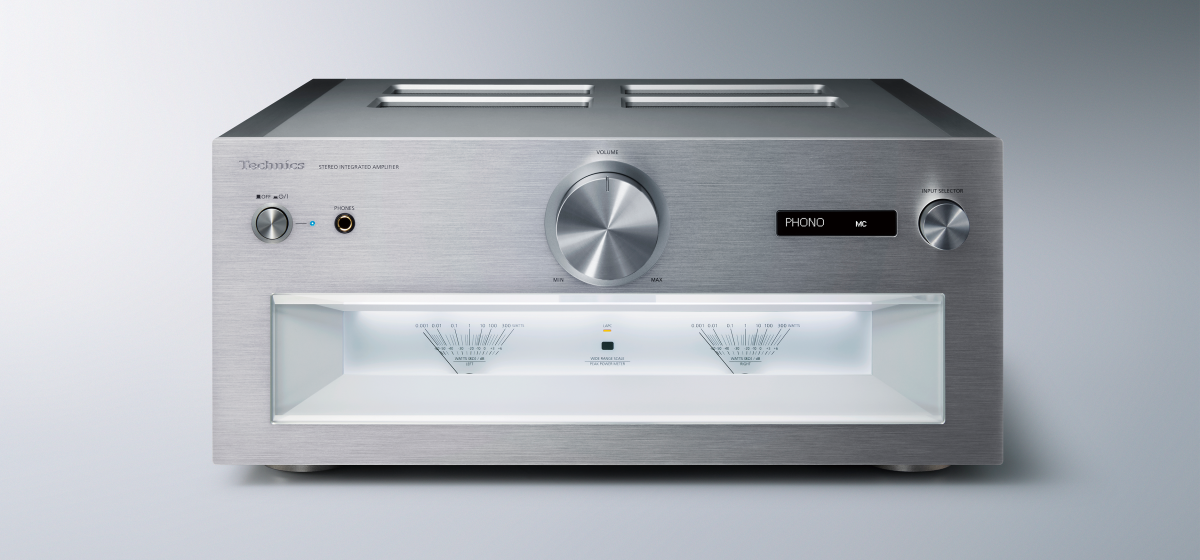
Features
JENO Engine
Jitter is a major cause of distortion in digital systems, and is caused by mis-timing in the master clocks used in digital-to-analogue conversion. To eliminate the degradation of sound caused by jitter, Technics has developed an original jitter reduction circuit, comprising a clock generator in the noise-shaping system to reduce jitter in the low-frequency range and a high-precision sample rate converter for suppressing jitter in the high-frequency range. Thus it reduces jitter in an ideal way over the entire frequency range. This works with original high-precision PWM (Pulse Width Modulation) conversion circuit, optimising the noise-shaping speed, the degree and re-quantisation number, and the PWM gradation, in order to convert high-resolution signals to PWM without causing any damage to the dynamic range. These technologies enable Technics digital amplifier designs to reproduce the natural and delicate nuances of music.
ADCT
(Active Distortion Cancelling Technology)
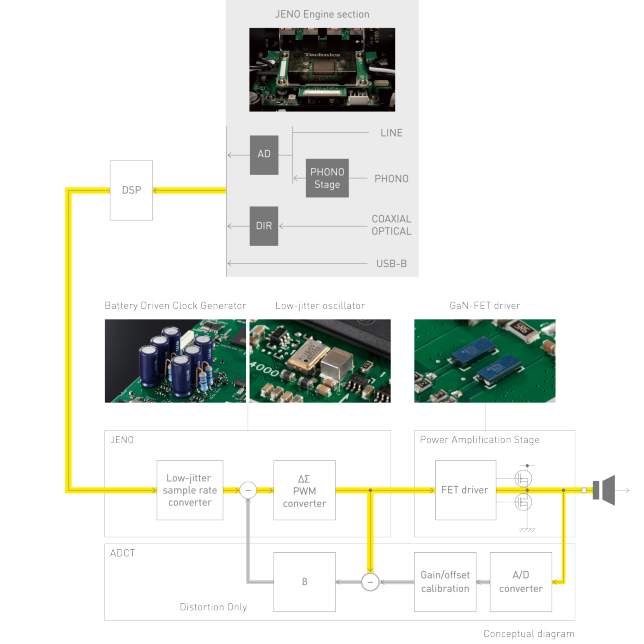
The Active Distortion Cancelling Technology newly developed by Technics accurately extracts and removes distortion in the power output stage which is generated by the speaker’s counter electromotive force and voltage drops. In the Hi-Fi audio market where an unlimited number of audio systems can be configured by combining various products, high-end audio amplifiers need to optimally drive a diversity of speakers. The Active Distortion Cancelling Technology accurately extracts distortion by determining the difference between the speaker terminal output and JENO output and then applies correction to the output digital signal, thus correcting the conventional digital amp system. This provides powerful speaker driving force and acoustic energy while offering the superior benefits of a digital amplifier, such as low noise, precise sound image and expansive sound ambience, regardless of the types of connected speakers.
Advanced Speed Silent Power Supply
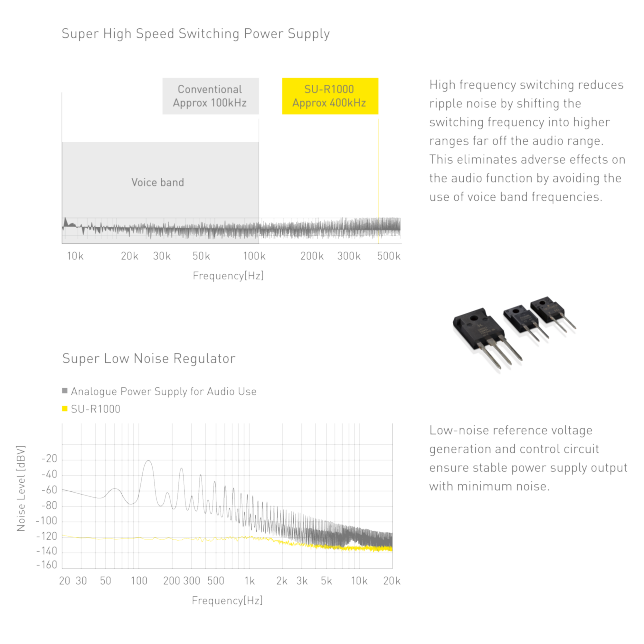
The SU-R1000 uses a switching power supply system to ensure a stable supply of voltage and current required by the digital amp. In a conventional switching power supply system, the ON time of the switching operation was controlled in order to stabilise the voltage, and this causes the switching frequency to fluctuate according to the load, resulting in a modulation noise to affect the sound quality. The Advanced Speed Silent Power Supply has eliminated this noise by fixing the switching frequency in the 400kHz band. Furthermore, a Super Low Noise Regulator is provided in the later stage. This prevents the decrease of regulation resulting from the fixed switching frequency and impedes the mixing of noise component into high frequencies. The result is a high-response power supply that results in the best performance from the digital amplifier.
Four Independent Power Supply Units
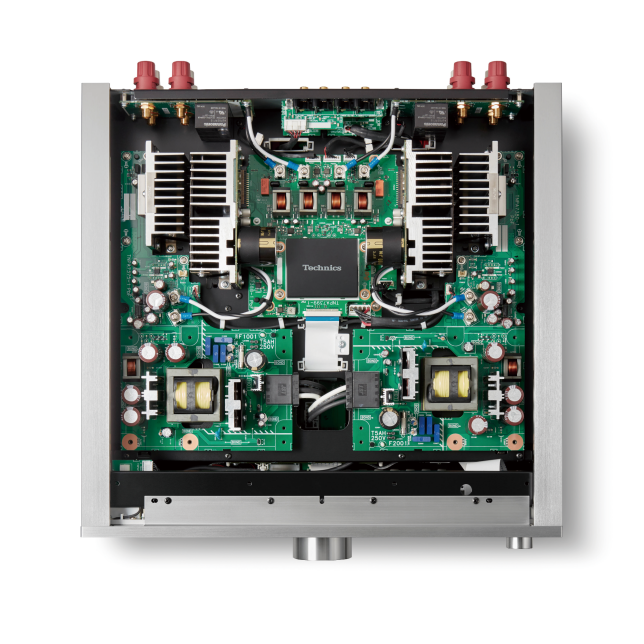
In the SU-R1000, every element comprising the power supply has been diligently studied and revised for higher sound quality. What’s more, four independent power supply units are provided for different circuit blocks for further enhancement of sound quality. Since the SU-R1000 is an integrated amplifier, the internal circuits consist of a pre-amp stage and power amp stage in a mix of analogue and digital circuits. The Phono-EQ section which processes minute analogue signals is particularly susceptible to the effect of noise transmitted through the power supply line. The SU-R1000 uses separate power supply units for the analogue circuits and digital circuits in the pre-amp stage. It also uses separate power supply units for the right and left channels in the power amp stage that requires large electrical power. With the four independent power supply units, the SU-R1000 prevents power-line-induced interference among the circuit blocks and realises a high S/N ratio and superb separation.
High-grade Digital/Analog I/O Circuit
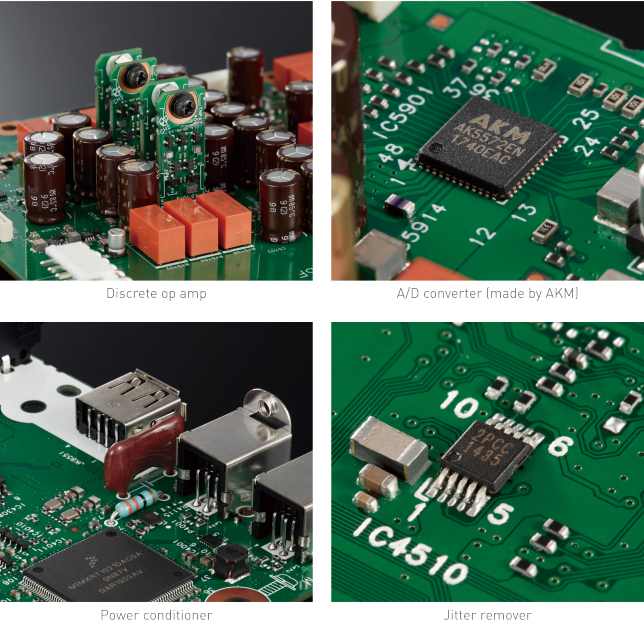
The phono input section and analogue input section feature a full-discrete circuit design. Technics has realised an ideal, symmetrical circuit layout and performed meticulous tuning. The new circuits prevent interference between the right and left channels and achieve excellent channel separation. Furthermore, the phono input section and XLR input section employ completely balanced transmission to ensure high-purity signal transmission with minimum effect of noise. The USB input circuit in the digital input section is equipped with a capacitor of high-quality ruby mica and a power conditioner with nonmagnetic carbon film resistors for blocking electrical noise e.g. from a PC and for minimising the effect of external noise. The A/D converter incorporates a high-performance chip made by Asahi Kasei Microdevices (AKM) for high-precision A/D conversion. Thus, the SU-R1000 reproduces outstanding sound quality from any analogue or digital input sources.
High Rigidity Chassis and Design
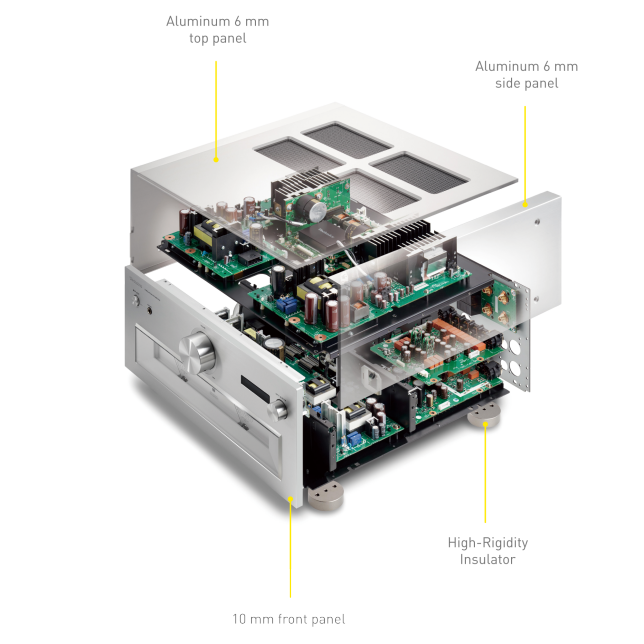
The rigidity of the chassis has been enhanced extensively to suppress the enclosure vibration that is also a source of noise. The inner chassis features a double-deck separated structure. Mounted on the upper deck is the power amp section consisting of the amplification circuit and its power supply circuit. Installed on the lower deck is the pre-amp section which is comprised of the analogue input section, including the phono equaliser, and the digital input section as well as the power supply circuits for those circuits. Not only the upper and lower decks but also individual circuit blocks are separated from one another by steel shield plates. These steel shield plates also serve as reinforcing plates for strengthening the rigidity of the entire chassis. On the outside, the front panel is 10-mm thick, while the side panels and top panel are made of 6-mm-thick alumite-treated aluminum plates. They have also improved the rigidity and vibration resistance. The insulators that support the chassis are made of cast iron with excellent signal attenuation characteristics. All in all, the above parts and materials enhance the quality of internal signals and eliminate the effects of external vibrations at highest levels.
Input and output terminals made of meticulously selected high-quality parts
- Speaker terminals designed to allow connection of extra-large diameter speaker cables
- Y-lug terminals for ensuring reliable cable connection
- Neutrik-manufactured analogue balance input terminals and PHONO XLR input terminals (exclusively for MC)
- Analogue input terminals with gold-plated, machined brass parts
Technics’ refined design
- Attractive front panel embellished with high-quality hairline surface finish and equipped with an iconic, large dual-needle meter
- Volume dial and selector knob made of parts machined from solid aluminum blocks and spin-finished
Input and output terminals made of meticulously selected high-quality parts
- Speaker terminals designed to allow connection of extra-large diameter speaker cables
- Y-lug terminals for ensuring reliable cable connection
- Neutrik-manufactured analogue balance input terminals and PHONO XLR input terminals (exclusively for MC)
- Analogue input terminals with gold-plated, machined brass parts
Technics’ refined design
- Attractive front panel embellished with high-quality hairline surface finish and equipped with an iconic, large dual-needle meter
- Volume dial and selector knob made of parts machined from solid aluminum blocks and spin-finished
Intelligent Phono EQ
The Intelligent Phono EQ mounted in the SU-R1000 utilises the sound quality improvement technology for DSP, which Technics has accumulated through the development of LAPC, in order to realise high sound quality not possible with analogue Phono-EQ. This technology consists of three parts: 1. Accurate EQ Curve, 2. Crosstalk Canceller and 3. Response Optimiser. These functions can be turned ON/OFF to suit the user’s preference.
Accurate EQ Curve – Made possible by hybrid analogue/digital circuit design
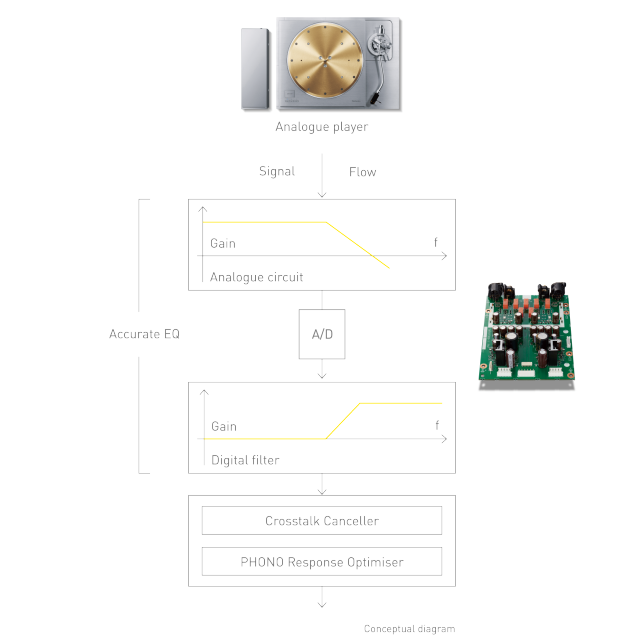
An accurate EQ curve is achieved by a hybrid analogue-digital system. The high-gain low-pass filter (LPF) performs analogue processing, while high frequencies are raised after the A/D conversion. The use of the 40-dB LPF(Low-pass filter) in the analogue region suppresses the bit loss during digital filter processing, and high frequencies are raised with high accuracy in the digital region to achieve a high S/N ratio.
Crosstalk Canceller - For measurement and improvement of crosstalk characteristic unique to each cartridge
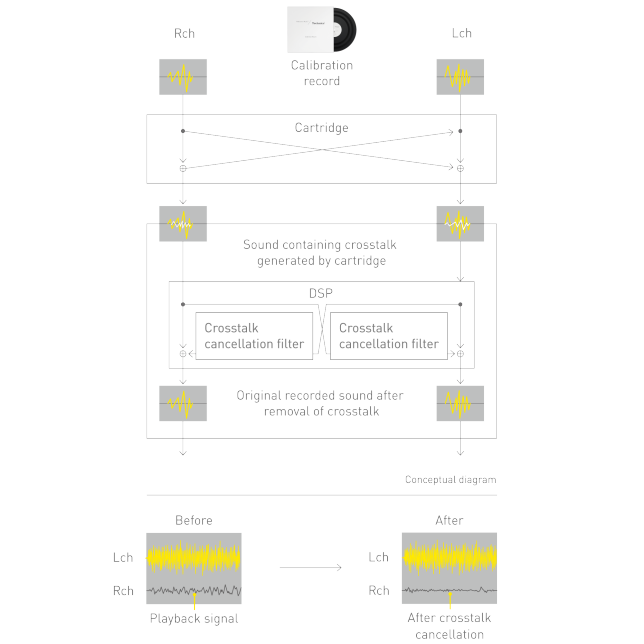
This function measures the crosstalk characteristic of the installed cartridge by using the crosstalk measuring signal recorded on the Calibration Record bundled with the SU-R1000. It then performs reverse-correction using the built-in DSP to achieve significant improvement of the crosstalk characteristic. This results in a more precise sound image and a wider sound ambience.
PHONO Response Optimiser - For correction of disturbance in cartridge frequency characteristics
This function measures the frequency characteristics of the installed pickup cartridge by using a TSP (Time Stretched Pulse) signal recorded on the bundled Calibration Record, and corrects characteristics disturbance. It corrects the effect of impedance matching between the pickup cartridge and the phono equaliser to reveal the true sound quality of the cartridge. This technology aims to improve sound quality by avoiding a selector such as a switch in the high-sensitivity phono input line for the removal of the possibility of noise disturbance.
*Although the record may be warped depending on the production method or its characteristics, this record passed the test for proper signal reading and is shipped.
*The record may be warped depending on the storage environment in your house. Please note a badly warped record may not only disturb the measurement but also hurt the cartridge.
*The record may be warped depending on the storage environment in your house. Please note a badly warped record may not only disturb the measurement but also hurt the cartridge.
Get Inspired
Specs
JENO Engine (Jitter Elimination and Noiseshaping Optimisation)
ADCT (Active Distortion Cancelling Technology)
LAPC (Load Adaptive Phase Calibration)
Advanced Speed Silent Power Supply
Four Independent Power Supply Units
Intelligent Phono EQ
Accurate Digital Technology
-
JENO Engine (Jitter Elimination and Noise-shaping Optimisation)
LAPC (Load Adaptive Phase Calibration)
Advanced Speed Silent Power Supply
Battery Driven Clock Generator
Noiseless Signal Technology
Advancement of Power Supply
Technics Definitive Design
-
High-rigidity Cabinet
Three-section Configuration
FTC Output Power
-
150W + 150W ( 1kHz, T.H.D. 0.5 %, 8Ω, 20kHz LPF ),
300W + 300W ( 1kHz, T.H.D. 0.5 %, 4Ω, 20kHz LPF)
Input Sensitivity / Input Impedance
-
LINE 200 mV / 22 kΩ, PHONO (MM) 2.5 mV / 47 kΩ, PHONO(MC) 300uV /100Ω
Frequency Response
-
LINE 5 Hz-80 kHz (-3 dB, 8 Ω),
PHONO (MM) 20 Hz - 20 kHz (RIAA DEVIATION ±1 dB, 8 Ω)
DIGITAL 5 Hz - 80 kHz (-3 dB, 8 Ω)
Load Impedance
-
4 Ω-16 Ω
Analogue Input Terminal
-
LINE x 2 (LINE 1, LINE2), LINE XLR BALANCED x1, PHONO (MM/MC) x1, PHONO XLR BALANCED(MC) x1, MAIN IN x1, REC IN x1
Digital Input Terminal
-
Optical digital x2 (OPT 1, OPT 2) , Coaxial digital x2(COAX 1, COAX 2), USB-B x2 (PC 1, PC 2)
Analogue Output Terminal
-
PRE OUTx1, REC OUT x1
Headphone Output
-
Yes, Stereo Φ6.3mm
support Codec
-
USB 2.0 high-speed ,USB Audio Class 2.0, Asynchronous mode
Support Codec
-
PCM
-
Yes (32, 44.1, 48, 88.2, 96, 176.4, 192, 352.8, 384 kHz / 16, 24, 32 bit)
-
-
DSD
-
Yes (2.8 MHz, 5.6 MHz, 11.2 MHz, 22.4 MHz* *ASIO Native mode only)
-
Power Supply
-
AC 220-240 V, 50 Hz / 60 Hz
Power Consumption
-
220 W
Dimensions (W x H x D)
-
430 mm × 191 mm × 459 mm
Weight
-
Approx. 22.8 kg
Accessories
-
Remote Control, Calibration Record, AC Cord, Owner's Manual
Reviews
USER REVIEWS
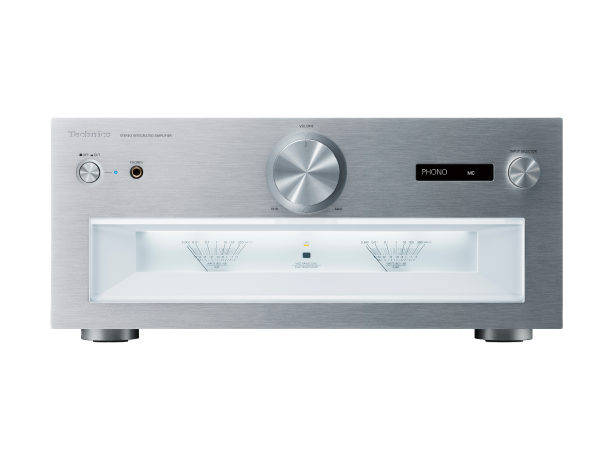
Customer Reviews

